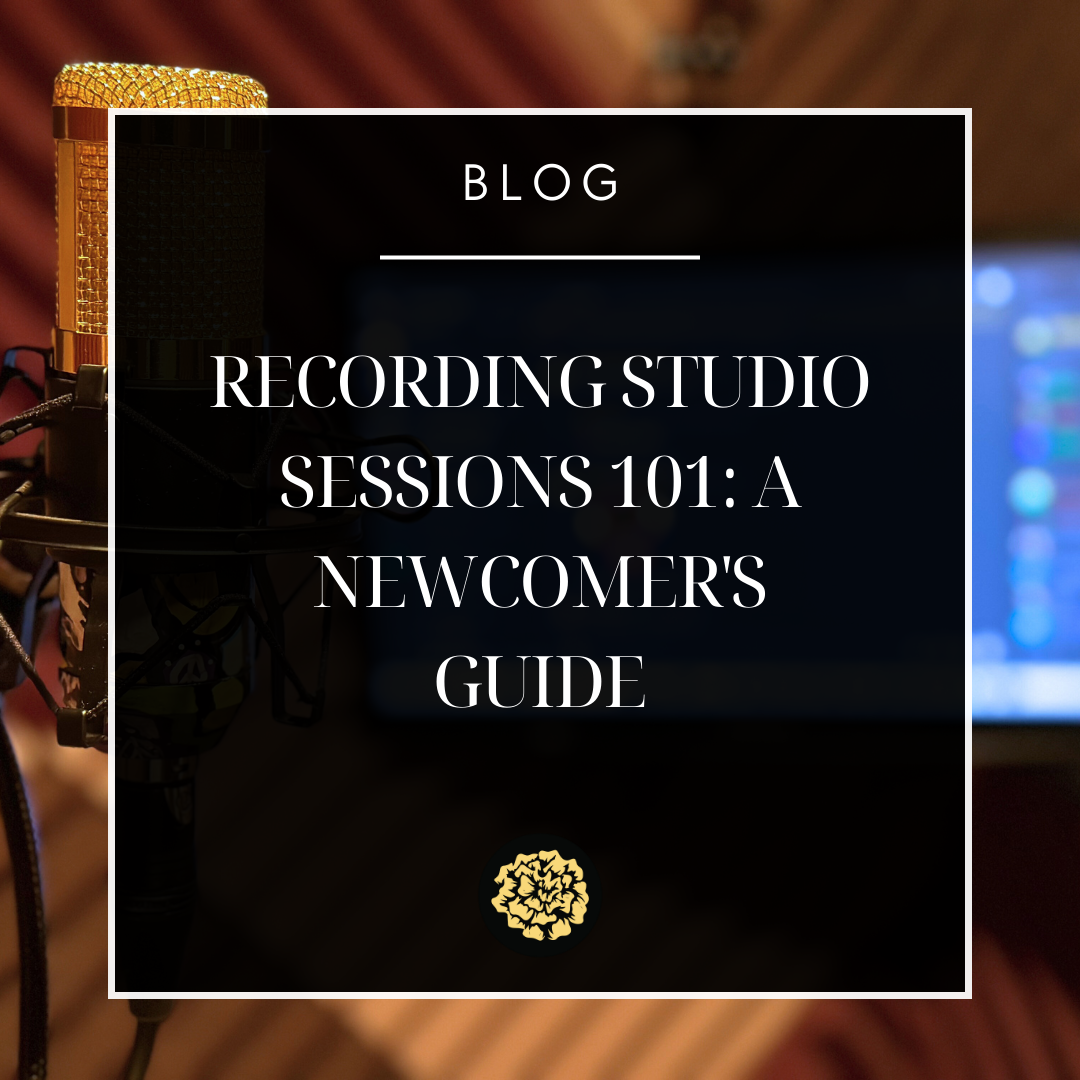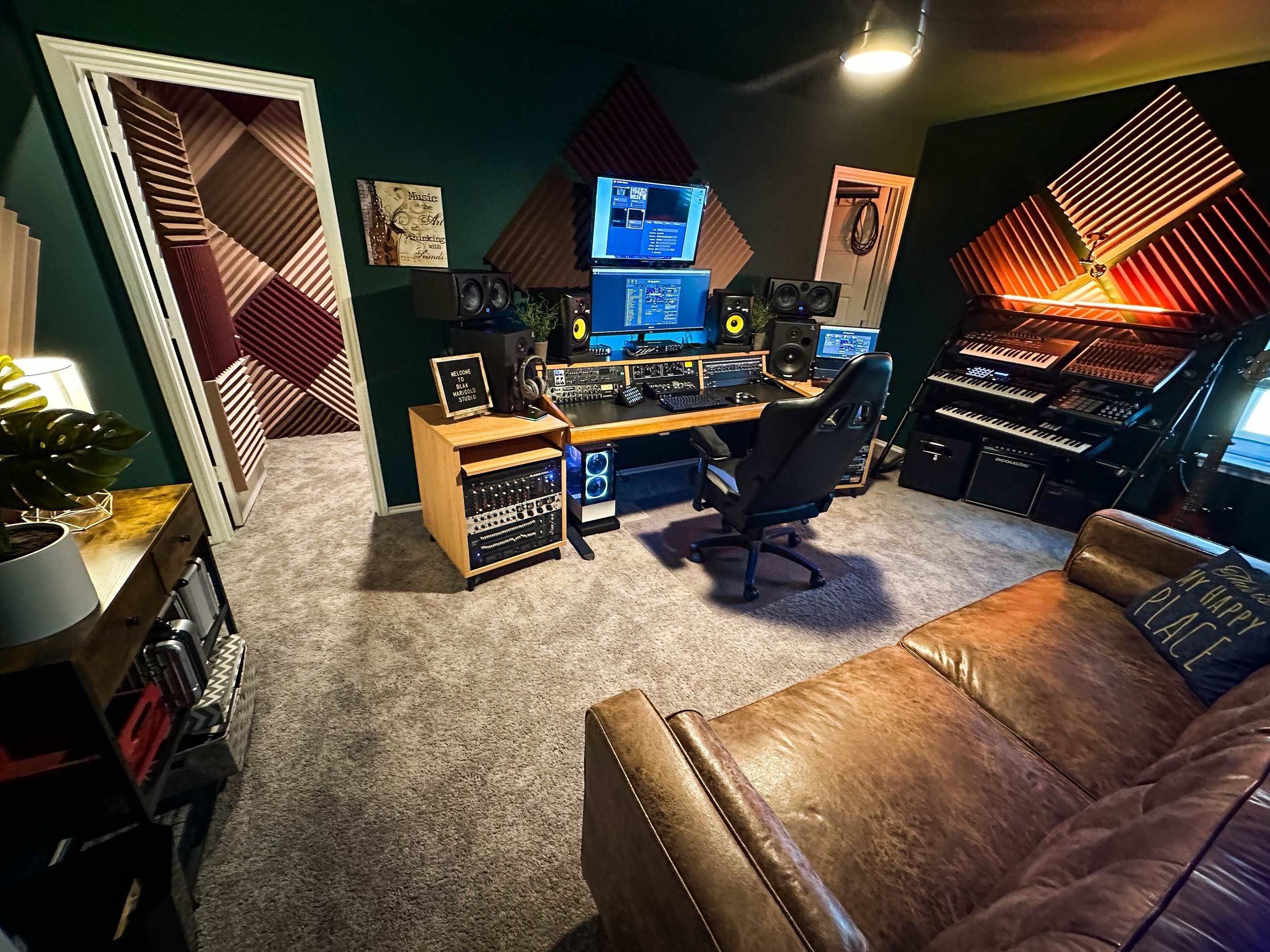Recording Studio Sessions 101: A Newcomer's Guide
As a new music artist, going to your first recording studio session can be both exciting and intimidating. There are a lot of things to consider and prepare for in order to make the most out of your time and money. In this article, we will explore the top things to consider when going to your first recording studio session as a new music artist.
Join a community of music artists, producers, DJs, and music industry connections free “The Blak Marigold Network”
Choosing the right studio for your needs
Researching different studios in your area
Comparing prices and services offered
Reading reviews and asking for recommendations
Setting goals for the session
Deciding on what you want to accomplish during the session
Communicating your goals with the studio engineer/producer
Preparing your music and lyrics
Having a clear idea of what you want to record
Having your lyrics memorized or written down
Making sure your instrument or vocal is in good condition
Bringing necessary equipment
Bringing any necessary equipment you have, such as an instrument or microphone
Communicating with the studio about any additional equipment you may need
Communicating with the studio engineer/producer
Building a rapport with the engineer/producer
Asking questions about the recording process and equipment being used
Providing feedback on the sound and mix of the recording
Timing and scheduling
Scheduling your session for a time when you are well-rested and able to focus
Arriving early to set up and prepare
Planning for breaks and rest periods
Budgeting for the session
Setting a budget for the recording session
Communicating with the studio about their rates and any additional fees
Prioritizing what is most important for your recording session within your budget
Working with other musicians or vocalists
Communicating with other musicians or vocalists to ensure a cohesive sound
Rehearsing beforehand to ensure everyone is on the same page
Taking breaks and communicating any concerns or ideas
Recording multiple takes
Recording multiple takes of each part to ensure you have options
Listening back and comparing takes before making a final decision
Understanding the editing process
Discussing the editing process with the studio engineer/producer
Providing feedback on any edits or adjustments made
Understanding the difference between minor and major edits
Planning for future sessions
Discussing future recording sessions with the studio
Setting goals for future recordings
Learning from your first recording session and applying it to future sessions
Preparing for post-production
Understanding what post-production entails
Communicating with the studio about any post-production services offered
Being prepared for any additional fees associated with post-production
Protecting your work
Understanding copyright laws and how they apply to your recordings
Discussing ownership and distribution rights with the studio
Protecting your recordings through legal means if necessary
Communicating with your team
Communicating with your manager, agent, or other team members about the recording session
Seeking feedback and advice from those who have experience in the music industry
Maintaining a positive attitude
Staying focused and positive throughout the recording session
Taking breaks and resting when needed
Keeping an open mind and being willing to try new things
Promoting your recording
Creating a plan to promote your recording once it is finished
Utilizing social media and other online platforms to reach new fans
Building relationships with local venues and promoters to book gigs
Learning from the experience
Reflecting on the recording session and what you learned from it
Making adjustments and improvements for future sessions
Continuing to grow and learn as an artist



